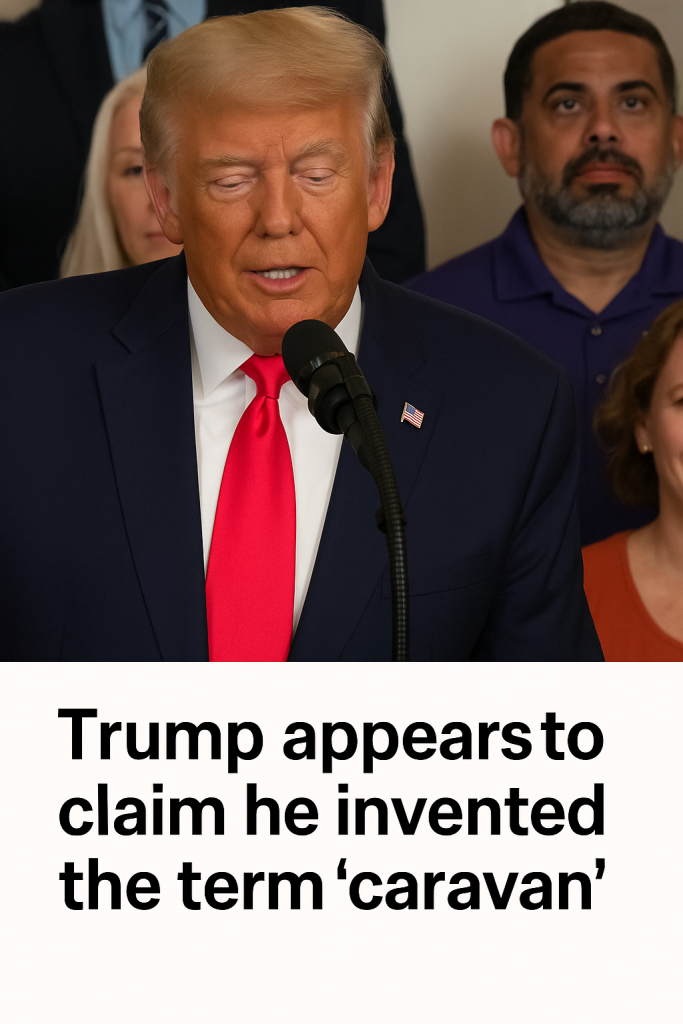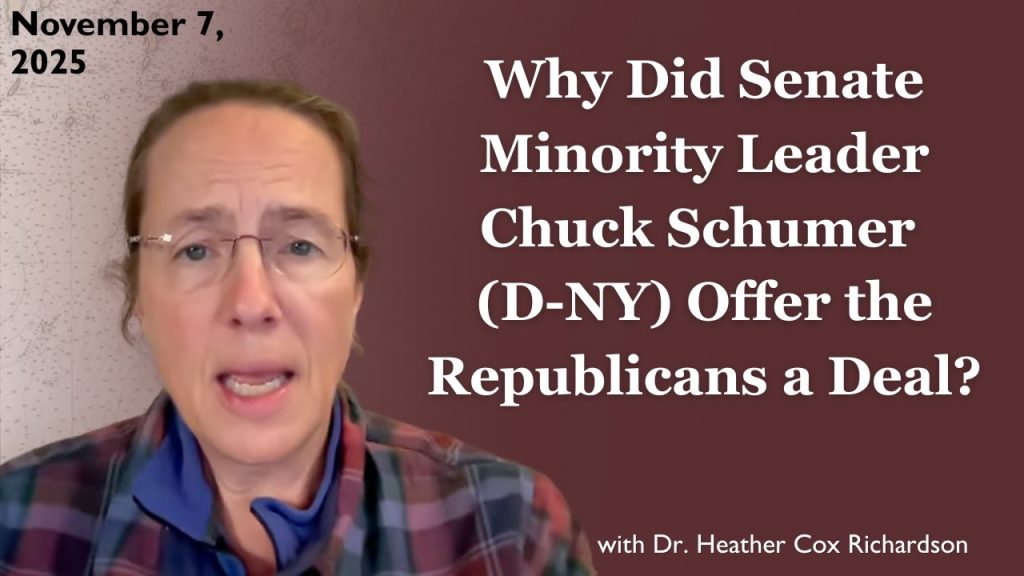In a recent and unexpected moment during a speech at the White House, former President Donald Trump appeared to claim that he invented the term “caravan” in reference to migrant groups traveling toward the United States border. The comments, made in front of reporters, have sparked a wave of reaction and curiosity about the origins of the now widely used phrase.
Speaking during a rambling address in the Oval Office, Trump said, “They’re sending the bad people out and they put them in caravans. I think I came up with that name but somebody did.” The former president’s tone was somewhat uncertain, but the statement marked one of the rare occasions where Trump suggested he coined a widely recognized phrase related to immigration.
Trump’s use of the word “caravan” gained significant prominence during his presidency, particularly in the context of Central American migrant groups traveling to the U.S. southern border. The term evokes a long procession of people moving collectively, often used by media and political figures to describe migrant caravans that started gaining widespread attention around 2018.
While Trump has frequently used the rhetoric around “caravans” to highlight his stance on immigration enforcement and border security, linguists and media researchers have noted that the word itself predates his usage by decades. The term “caravan” traditionally refers to any group traveling together, especially across deserts or hostile terrains, with origins tracing back to Persian and Arabic languages.
Political analysts say Trump’s apparent claim to have created the phrase likely reflects his desire to assert ownership over the language used in his political messaging rather than a literal invention. The term became a focal point in Trump’s narrative framing migration as a national security issue, often accompanied by vivid imagery and warnings meant to mobilize his political base.
The remarks came during a period when immigration remains a hot-button topic in U.S. politics, with 2024 presidential campaigns already underway and policymakers debating the future of border control legislation. Trump’s assertion, delivered from the Oval Office setting, also underscored his ongoing influence in shaping immigration discourse despite no longer holding office.
Observers noted that while the claim to have “invented” the word is factually dubious, the moment highlights how political figures seek to claim linguistic territory to bolster their narratives. The unpredictability of the statement fascinated social media, sparking memes, discussions, and debates about the nature of political communication and language ownership.
Whether the comment was a deliberate claim or an off-the-cuff remark remains unclear, but it adds another chapter to the story of how the word “caravan” entered the American political lexicon in recent years. It demonstrates how language and immigration politics continue to intertwine in ways that capture public attention, shape perceptions, and fuel political campaigns.
As immigration continues to be a defining issue in American politics, the evolution of terms like “caravan” will likely remain part of the conversation — especially when they come with unexpected claims from high-profile political figures.



